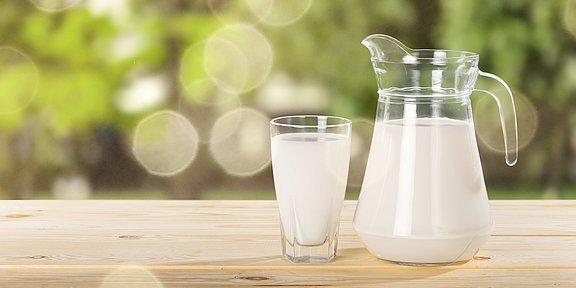Calcium deficiency?
The German Nutritional Society e. V. (DGE) writes on their website that:
Calcium is a vital mineral, quantitatively the most essential in the human body. Almost 100% of calcium is found in the bones and teeth – calcium preserves the stability of bones and teeth. Calcium is also an important factor in blood clotting, and it is essential for the functioning of every cell in the body: it stabilises the cell walls, and it plays a role in the transfer of signals within the cells and the transmission of stimuli within the nervous system (e.g. hearing, sight, touching of the skin) and within the muscles. *
In terms of quantity, the amount of calcium stored in the body is much more abundant than any other mineral (e.g. potassium, magnesium, sodium). The calcium content accounts for up to 1.7% of human body weight. It can account for a whole kilogram at a bodyweight of 60 kg.
An adequate supply of calcium is particularly important for children, adolescents and young adults, since their bone mass increases until it reaches its maximum level, the so-called “peak bone mass”, between the ages of twenty and thirty. After that, the body is no longer able to build up bone substance, and is only able to break it down. A good calcium supply at a young age can be beneficial for ensuring strong, resilient bones in old age.
According to the German Food Information Regulation (LMIV), the reference amount for one’s daily calcium intake is 800 mg for both children and adults. Taking growth into account, the DGE even recommends an age-dependent intake of 1,100 mg between the ages of 10 to 12 and up to 1,200 mg per day for 13 to 18 year olds. A dose of 1,000 mg per day is recommended for adults.
Ensure that your requirements are met, by being aware of the calcium in your diet!
Milk and milk products, like yoghurt and cheeses such as Emmental, Gouda, Parmesan and Feta, are particularly rich in calcium. Whole grain products such as sesame, hazelnuts and Brazil nuts, green vegetables such as broccoli, chard and kale, and mineral water with a calcium content of more than 150 mg per litre, are also good sources of calcium. People who eat a vegan diet should regard such products as especially important.
Tip:
Vitamin D3 promotes the absorption of calcium from the digestive tract into the blood, and the incorporation thereof into the bones and teeth. You should always ensure a balanced Vitamin D3-status, to ensure the supply of calcium to the body. This is important for both children and adults, especially in the winter months.
Please also refer to our information on Vitamin D3, which you will find under “Vitamin D3 – Das Sonnenvitamin (The Sunshine Vitamin)”.
* retrieved on 19 November 2019 from: https://www.dge.de/wissenschaft/weitere-publikationen/faqs/calcium/
